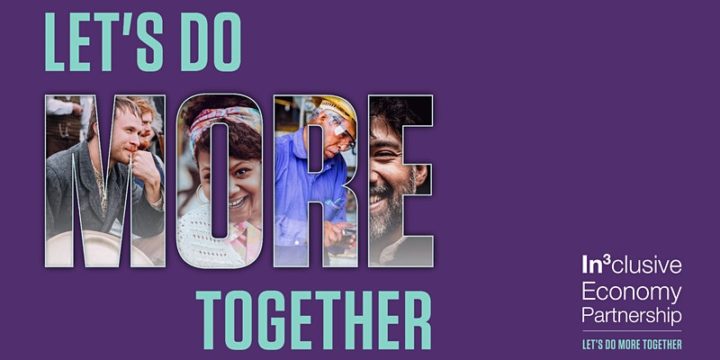Of all the things 2021 might be well remembered for, perhaps some of its slogans will loom large in our minds. Levelling up. Build Back Better. The new normal.
While these slogans are aplenty, what’s rarer – and needed – is hearing about how these promises of meaningful change actually occur. How do you create more opportunities for all? How do you ‘level up’? How do you warm those social mobility cold spots?
And beyond the technicalities and the methods, who is it all for? What change is really happening in people’s lives?
Tenacity and drive
Over the last six months, The Young Foundation, via the government-backed Inclusive Economy Partnership’s BOOST programme, has supported a cohort of 30 phenomenal change-makers. These mission-led organisations are tenaciously reducing inequalities, building stronger local economies and addressing the climate crisis. They are ‘real’ people having real impact on real lives.
Each is driven not just to make a meaningful change, but to challenge themselves to grow their idea to reach and help more people. Between them, they are finding ways to overcome the digital divide, support mental health, ensure financial inclusion and future-proof routes into jobs.
Supporting partnership
Through supporting them to grow and scale, we at The Young Foundation have been able to understand the common ingredients that set these people and their projects apart from other interventions that promise much and deliver less. Spoiler: ideas, projects and organisations are stronger – and more impactful – when partnerships are forged and when they are, in some way, in embedded in communities.
We have seen organisations merging national reach with local need, by partnering simultaneously with large organisations and hundreds of community groups. This approach takes serious coordination: matching the needs that community groups see on the ground, with the resources and impetus of big business.
David vs Goliath
Sometimes collaborations have been the direct result of local authority or public sector insights that need creative solutions from outside the institution. Other times, we’ve seen the reverse: our social innovators creating data insights that then transform the response or intervention of a local authority.
Data can also be the start. We have seen the value one data-led organisation holds in finding true alignment of values and how collaboration is the cornerstone of their business.
While social innovation is increasingly seen through a digital technology lens, it’s been inspiring to see the hands-on approaches of organisations that find meaning and purpose through practical support. Such intensity of offer can come at a cost of slower growth, but it is what powers some organisations who resist over-processing, and over-digitisation, in favour of knowing the people they support.
David is often pitted against Goliath in our collective consciousness when we think about organisations creating change. We call them the disruptors and celebrate their defiance. In fact, we’ve seen through BOOST and the Inclusive Economy Partnership that our largest challenges need collaboration, not reckless independence. Through BOOST, all the cohort members have taken deliberate steps to strengthen their partnerships, in recognition that they are key to impact and to growth.
Real change
Before we reflect on where next, I’d like to take a moment to think about where we are now. Over the last six months, this cohort all saw organisational growth – around 25% growth on average. Many have secured funding, which will propel their ventures on. And, during the programme, more than 150 partnerships were forged and more will be finalised soon.
But arguably this is all surface-level. The deeper point is, these organisations are making real change in people’s lives. We spoke to a number of their beneficiaries. They told heart-warming and tear-jerking stories of how these organisations have provided a lifeline – helping someone get their first job, providing a small business loan when retail banks said no, giving a smart phone so a child could access home learning at the height of the pandemic. These aren’t slogans: these are people who, thanks to this cohort, have more opportunities.
The Young Foundation continues to explore new forms of partnerships as part of legacy activities for BOOST, focussed on cross-organisational partnerships. Please email iep@youngfoundation.org for more information.

COVID-19 Posted on: 7 December 2021 Authors: Lydia Ragoonanan,
